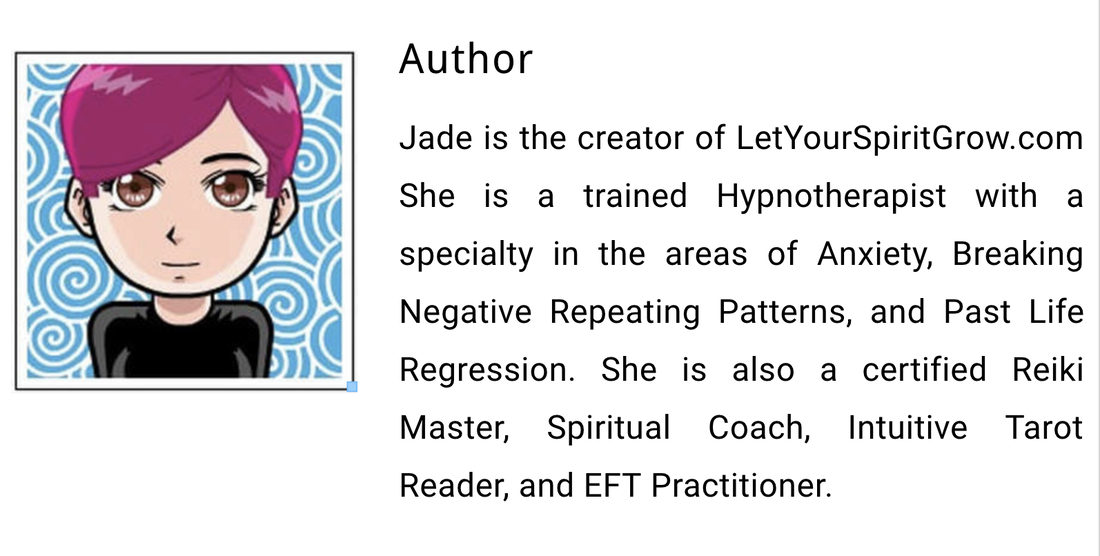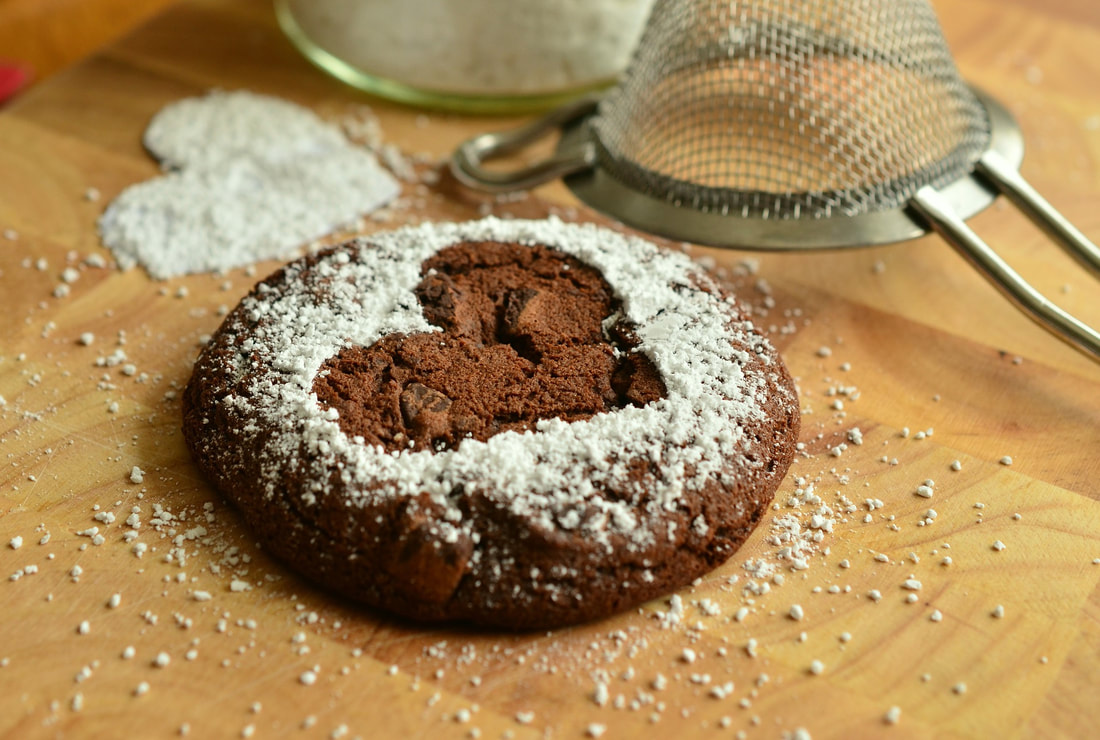|
Do you have a pattern that you would like to break? Are you sure that you are "just not good" at something or is that a belief you have taught yourself? Learn how to change your thinking in this hypnotic post. They say that an uncluttered living space helps you have an uncluttered mind. It’s a great theory, one I could definitely manage to a great degree as a single gal, living in a small apartment by myself. Fast forward a few years to marriage, a toddler, multiple moves including from one Province to another, and a super busy life and let’s just say that uncluttered doesn’t exactly describe my living space! To help you understand my mindset, let me paint a picture for you of what I grew up with that was considered "normal" to my family. My mother was your typical obsessive parent who had a super regimented life, no doubt nurtured by 1950s ideas of progress and efficiency in the home. Every day of the week had a specific chore. For example: groceries were bought on Tuesdays. Laundry day was Friday, but floors had to be vacuumed every single day, starting at a certain point in the house, no deviation allowed. Growing up with that strict schedule drove me absolutely batty to the point that I swore that I would never be that way, ever! Despite all of that, as my life went on I found myself exhibiting a similar type of inflexible thinking. I am sure that I adopted many of these behaviours as a way to control some aspect of my life, which, from the start had been very much out of my control. In my mind I created a “right way” of doing things. Dishes for example, had to be washed or loaded into a dishwasher a certain way. It literally made me anxious, nervous and irritated, to have someone else wash dish or load the dishwasher the “wrong way.” How does this happen? When we repeat something to ourselves with a negative basis we create that negative belief. For example: if you say “I am a terrible dancer” you are creating a negative belief. If we reinforce that negative belief by constantly saying it, whether it is to ourselves and/or to others, we reinforce that negative belief to the point that it becomes true to us, and because we believe it to be true, we pass that message onto others as a factual and true statement. Behaviour patterns work in the same way. For example, without even realizing it, I was saying to myself “The dishes are only done right if they are done my way”. This is a belief with a negative basis. By unconsciously repeating the statement to myself I had reinforced my belief to the point that seeing anyone else doing dishes in any other way that “my way”, resulted in an experience of anxiety, nervousness and irritation, and my insistance that I had to do the dishes. How do I break the patterns? The first thing to know if that you have to be ready for change. I was at a point in my life that I was working on myself and what I wanted out of my life, when I decided that my behaviours were not acceptable or fair to me, or to anyone who was around me. I decided that my behaviours were too hard to live with. I spent a great deal of time reprogramming myself. I didn’t know it then, but I was practicing self-hypnosis techniques. Self hypnosis can be used to both to fuel negative behaviours and help reduce or remove them. In order to break a pattern, you must create a new way of thinking.Then you must reinforcing that thinking in a positive way. For myself and my strict thinking about dish washing, I forced myself to repeated a phrase: “My way is one of many ways to wash dishes. It’s okay if someone washes them a different way.” I made a point of saying it out loud as hearing the words said reinforces the statement. With time and consistency of repeating my message, I was able to break the pattern I had created for myself. At first I could not even watch anyone wash dishes! I had to walk away from the visual of it but that is okay, it is part of the process. If you are trying to break a pattern, consistent, regular, positive reinforcement is what is needed. Tell it to yourself and make sure to repeat it to others. For example: "I am a great dancer!" Sometimes you will have to walk away and give yourself a break, but it will get better. Reprogramming a belief takes time and patience with yourself. You can do it. Be kind to yourself. We are all a work in progress. To this day, I still shake my head at the way some people wash dishes, but I have learned to just let it go. I still prefer an ordered, clean space but I also know that sometimes, at some points in life, that is just not possible, and that is okay.
0 Comments
Does the Festive Season cause you stress because there are too many food temptations? Read more on how you can stop your food cravings and enjoy the Festive Season once again. Temptations All Around The festive season is probably the hardest time of year for anyone trying to have a healthier lifestyle. Enticing food temptations are around every corner, from gourmet stores displaying luxurious treats, to co-workers baking goodies and bringing them in to share. It can be overwhelming and intimidating to try and constantly resist them, especially with well meaning persons encouraging you to have “just a taste” or saying things like “come on, it’s the holidays, one bite won’t kill you!” It may be true that one bite won’t kill you but it could lead to an avalanche of poor choices and the attitude of defeat~ “well I gave in all last week, so I might as well just give up trying.” How do you stay motivated to resist temptation when you are faced with it every day? Tapping On Emotional Memories Commonly called Tapping, EFT (Emotional Freedom Techniques) is a useful and effective tool to help combat food cravings because it works on the emotional memory tied to a food craving. The myth of "willpower" makes it seem that only those with a strong will can avoid all the delightful treats around them. Images of desired foods are very appealing, and are able to sway many people to suddenly want something that had not thought about, like seeing a tray of Festive cookies in front of them and suddenly wanting to eat them! Food cravings are increased when we smell food. Our sense of smell is one of our strongest senses. Smells tie us to emotional memories, like the smell of fresh baked cookies can remind someone of a happy childhood memory like baking with a grandparent. EFT is a technique, which is most effective when done with a specific goal in mind. When working with food cravings, it is helpful to have that item – for example a cookie, placed in front of the person who wishes to work on their cookie cravings is the first step to combating the desire to eat it. All of our senses are engaged when we are around food. EFT works with all of our senses and our physical and emotional reactions to foods. The sight, smell, taste, sound, touch, and emotional connections to that food are all worked on bit by bit until the desire to eat the unwanted food is greatly reduced or disappears all together. A Fun Experiment There is a fun experiment anyone can try to see how much our physical responses and emotional responses play into our food cravings. 1. Have a desired food item (still in its packaging) placed on a table in front of the person who is craving it. 2. Have the person only look at the food in question and ask them how much they are craving it on a scale of 1-10? With 10 being that the have a very urgent desire to eat the food. 3. Ask the person to now handle the food and open the packaging on that food item. Notice the physical and emotional responses the person will exhibit. You will see physical signs such as heart racing, skin flushing, inhaling to smell the food better, and mouth watering. Emotional responses can smiling, happiness, anxiety (guilt) or anger because they are being tempted. So if this Festive Season you want to try to not to eat every temptation you come across, try EFT. There are many reputable practitioners who can help you overcome your physical and emotional tie to food cravings. Break your sugar addiction by tapping your way to success. Read more in this sweet post. Sugar is addictive. It is one of the most addictive "legal drugs" in the world. In fact according to Statistics Canada, in 2004 on average, Canadians consumed 110.0 grams of sugar a day. That is equivalent to 26 teaspoons of the sweet stuff! That equals 21.4% of an adults total daily calorie intake. By 2015 the number had dropped to 101 grams, due to less sugary drinks being consumed. So we are trying, but what is a person to do when "willpower" is not enough? Sugar comes in many forms. For many chocolate is an addiction. Inexpensive and easy to find, chocolate is filled with sugar in many sweet forms. Caramel and cookies enrobed in chocolate, dark chocolate with mint cream filling, crunchy nuts or nougat surrounded by a milk chocolate coating. Others prefer their sugar hot and comforting, like a hot chocolate with marshmallows. Is it wrong to enjoy these sweet treats? No of course not. There is nothing wrong with indulging your sweet tooth one in a while, but what happens when you can't stop yourself? What happens when that chocolate becomes your addiction and your desperate struggle to hold onto your "willpower" doesn't last? Willpower right? That is the answer! That is what EVERYONE says when someone cannot seem to stick to their plan. So that MUST be the answer because that is the problem. Everyone from personal trainers, doctors, friends, and family all say it. Even that slim co-worker who lost so much weight is telling you it's all willpower, Right? Wrong. Willpower Is A Myth Willpower is a myth. There is absolutely no scientific basis that is works. Why it works for some people is a complex answer that involves lifestyle, upbringing, genetics, mind set (e.g. exercise is fun not a chore), finances, emotional health and more. Tapping Often called "Tapping," EFT or Emotional Freedom Techniques is a method that uses repeated pressure with the finger tips on specific points in the body to release emotional blockages. These points are called meridians. Meridians are used in the ancient Chinese medicine of Acupuncture. Tapping can bring up many emotions, memories, and physical symptoms. This is an indication that it is working. When people suppress their emotions and try to ignore negative memories, it can lead to a whole host of physical and/or psychological issues. To combat this, some people turn to food, (usually sweet foods) for comfort. The addictive nature of sugar fuels the desire to eat more and a vicious cycle begins that many people struggle to end. When eating is not about food, but is tied to emotions and negative memories, it is not possible to use willpower alone to stop the cycle. Break The Cycle If you suspect you have a sugar addiction and you would like to break your cycle of sugar addiction, consider adding EFT to your list of lifestyle changes. There are many qualified practitioners who can help you. The long term benefits of emotional release, resolution of negative memories, and stress reduction will improve your chances of beating your sugar addiction because you will no longer have the fuel to feed your desire to consume it in large quantities. |










 RSS Feed
RSS Feed
